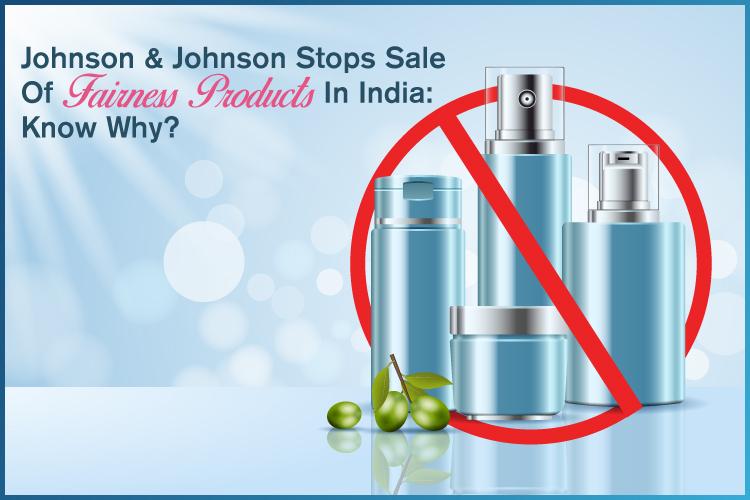Johnson & Johnson Stops Sale Of Fairness Products In India: Know Why

Every time we turn on our TV, we see so many ads, and among them are fairness creams too. Everyone watches television from children to older adults. What impression do these fairness creams ads give?
Colourism has always been a part of this society and not just India. People still discriminate against others on the basis of the colour of their skin. Meanwhile, people have developed inferiority complexes due to this.
These fairness cream ads keep asking us, ”remove that tan,” ”get fairer skin instantly, ” apply this, apply that, etc. And considering the typical mentality that sadly exists even today, these ads don’t go unnoticed. Everyone wants to look fair and pretty because that’s what we’ve been fed since childhood.
These fairness products are no doubt making big profits. But what does this tell us about our society? Are we living in a world where people obsess so much about fairness? And above all, is it fair?
It is so disheartening to see Indians still endeavouring to get fair skin. Even though the world has progressed so much in every aspect, we cannot deny the fact that orthodox mentality exists in India. We’re being taught to be beautiful from the inside, but what happens suddenly? Why do people forget all these values?
These fairness creams have developed a picture in young minds that having fair skin means being beautiful. The promotion of these fairness creams keeps on reminding us that we need to be fair to look pretty.
However, if you think that the entire “have a fair skin” business is only limited to women, you’re wrong. Brands promoting fairness products for men too have stepped in this race.
But these fairness cream ads don’t stop here. These ads narrate a story of how a businesswoman or an aspiring sportsman achieved his goals because of this fairness cream. But having a lighter skin tone doesn’t make you successful, you need talent! But why do the sales of these products keep on increasing?
Even educated people are falling in this “get a lighter skin tone in three weeks” trap. These products might help you remove tan, but the skin colour we have is hereditary. The melanin pigment in our skin is responsible for our skin tone. Neither a fairness cream worth 50 rupees will do any good nor a ₹ 500 worth cream can make you fair.
These products have just given us the wrong picture of being beautiful or successful. Complexion only matters if you believe it does.
Amid this worldwide debate on racism and inequality, Johnson & Johnson has stepped up and announced to stop sales of its popular fairness creams in Asia and the Middle East. Its Clean & Clear fairness products won’t be sold in India anymore. Additionally, the Neutrogena Fine Fairness Line by Johnson & Johnson available in the markets of Asia and the Middle East will also be dropped by the company.
Recently, Johnson & Johnson has received backlash regarding how its products represented that fair complexion is better than one’s skin tone. To which the company says that it never ratified such an idea; instead, its motto is “beautiful skin is healthy skin.”
The company has announced that it will no longer manufacture or distribute it’s dark spot removal creams. Although they might still appear in cosmetic stores till the stocks run out.
The biggest personal care companies such as L’Oreal, P&G and Unilever, guarantee to give lighter complexion to women under their brands Garnier, Olay and Fair & Lovely.
Till now, these companies haven’t said anything about restricting the production or sales of their fairness products. More than 6000 tonnes of fairness products including dark spot removal creams and anti-ageing creams were sold across the globe in 2019.
What do you think about racism and the contribution of fairness creams in promoting it? Let us know your views about this step of Johnson & Johnson in the comments below.
